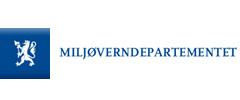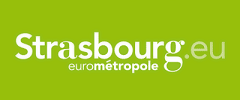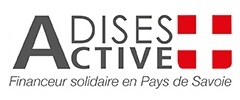Developing public participation in local decision-making processes
Training Conference on sanitation, waste-water, storm-water and solid-waste in the villages of Stara Zagora Spa and Sulitsa (Bulgaria)
09.11.2005 |Bistra Mihaylova and Margriet Samwel
Workshop with Maria Ilieva, Bulgarian project partner, and a representative of the village committee

Opening ceremony with the deputy mayor of Stara Zagora City, Diana Iskreva, Director of Earth Forever Foundation, and Sascha Gabizon, Director of WECF
The aim of the training conference was to mobilize local citizens and authorities in working together to improve the environmental and health situation in the project 2 villages.
The citizenís and authorities are motivated to work together constructively, as the project provides a budget of 17,000 Euro per village with which in a concerted effort, the citizenís and authorities can implement demonstration projects.
The criteria for these demonstration projects is that they are decided on in a democratic manner, that they respond to a real need, that they are innovative, that they can be replicated with local resources, and finally, that they address the problems of water pollution, waste- and storm-water, sanitation and solid-waste.
Download the full report on the training sessions.
By: Bistra Mihaylova and Margriet Samwel, WECF
EFF Training Conference in Bulgaria
The training conference water and waste took place in Stara Zagora Spa, one of the 3 villages included in the WECF Project ĄSustainable water and waste management in the rural areas in Bulgariaď. This project is financed by the MATRA programme of the Dutch Ministry of Foreign Affairs and carried out by WECF in cooperation with the Dutch Partners WASTE and IRC, and the local Bulgarian partner EfE (Stara Zagora) and IEM (Varna).
Included in the objectives of this training were to present the project progress in the villages Stara Zagora Spa and Sulitsa. EFF director Diana Iskreva gave a presentation on results and findings of the surveys that were made during the first 6 months of the project. The most problematic situation were found in Sulitsa village with:
- the storm water coming from the near hills destroying the pavement;
- with no centralised waste collection;
- with overflowing soakaways.
- the overflowing soakaways
- the waste water flowing directly on the streets;
- the e-coli pollution and closing of the Spa drinking water well for several months;
- storm water coming from the hills and flooding stairs and parc;
- illegal landfill between Sulitsa and Stara Zagora Spa.
- For household sanitation
- EcoSan-double vault latrine toilet with in house and out house option;
- Composting toilets;
- For waste water treatment when there is no waste water treatment plant:
- soil filters;
- ponds/lagoons;
- storm water management options;
- rainwater harvesting;
(5 m2 per person for waste water, and 2 square meters for grey water) and no enclosure.
Also the presentation on integrated sustainable waste management, held by the partner of WASTE and IEM found attention of the audience. The focus of the IEM and WASTE presentations was to show what other municipalities are doing in the area of solid waste management, and why composting saves a lot of landfill space, and thus costs.
The presentations where each time followed by work in working groups, where the participants where asked to validate the findings presented, and to think about barriers and catalysts of applying the proposed technologies in their villages.
The participants of the training conference included;
- 10 representatives of the 2 village committees (the representatives had been elected by citizenís of the two villages during the preivous weeks village meeting)
- 8 participants from the municipality of Stara Zagora,
- 4 representatives of the River Basins in Plovdiv and Stara Zagora,
- 2 representatives of the the Water company,
- 2 represnetatives from the Ministry of Agriculture
- 2 associated professors from the Tracain University,
- 8 representatives of the project partners from Stara Zagora and Varna.
Quite some attention was paid in the workshops to the illegal waste-water pipe going into the park of the Stara Zagora Spa village. Another topic of hefty (albeit always polite) discussion was about the illegal dump site between Sulitsa and Stara Zagora Spa.
The inhabitants of Sulitsa (no sewage connection) showed great interest in urine diverting (ecosan) toilets for households and for the cultural center. Currently people have to do with outside pit latrines. Franziska Meinzinger of TUHH was asked to visit the cultural center of Sulitsa, and she gave a first estimate of costs and location for building an inside-urine-diverting toilet, this could be one of the demonstration projects. The cultural center is visited a lot, especially during summer time by the children who spend their vacation with their grandparents. The cultural club has a library and the EcoSan toilet could be used by all the visitors.
Another topic of great interest for the citizenís of Sulitsa was improvement of storm water management, through infiltration canals and other means, so as to reduce damage to the roads.
In Stara Zagora Spa the citizenís discussed that they would like to have a public ecosan toilet in the centrer of town, near the bus stop. There are quite some Bulgarian tourists visiting the village because of itís reputed thermal bath.
Both Stara Zagora Spa and Sulitsa have a centralized water supply system for drinking water, which provides very good quality water for the Spa, and water with quite high nitrate levels (but below the limit) for Sulitsa. Water protection measures for the wells of Sultisa could be improved.
In the workshops on solid waste management the participants were very interested in the topic composting of organic waste. Composting is for many villagers a more or less forgotten habit.
The villagers debated that it could be good to start composting in the area of the kindergarten and the central park. In addition actions to clean the parks were proposed.
In the next village meetings the citizenís and local authorities will continue with a prioritization process, on how to select sustainable, replicable and innovative demonstration projects.


































